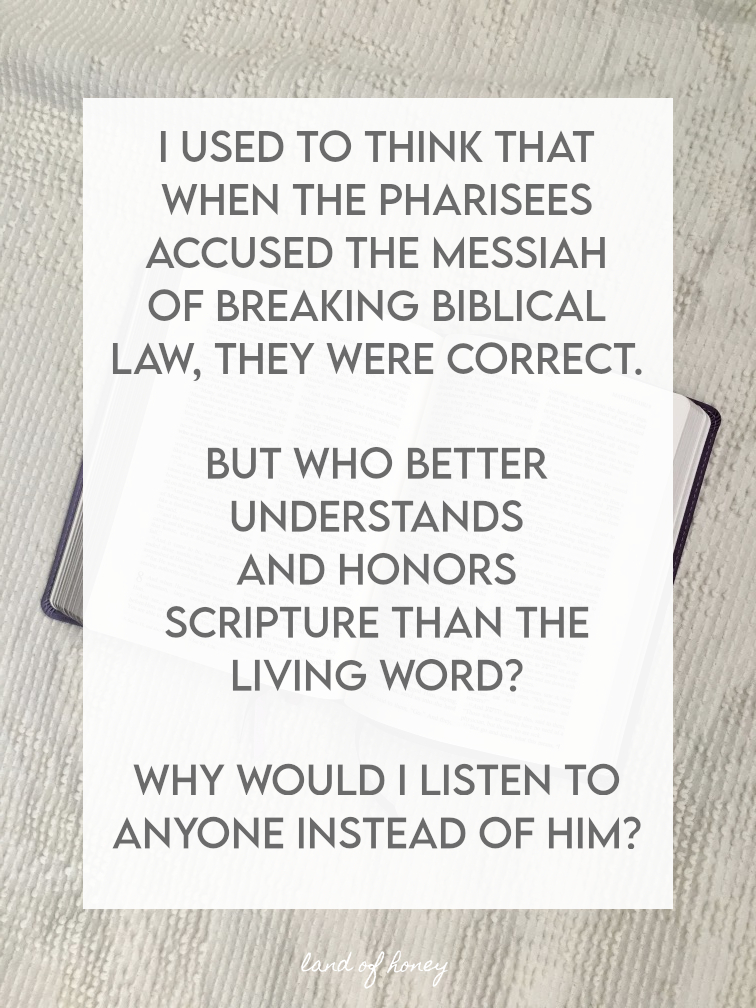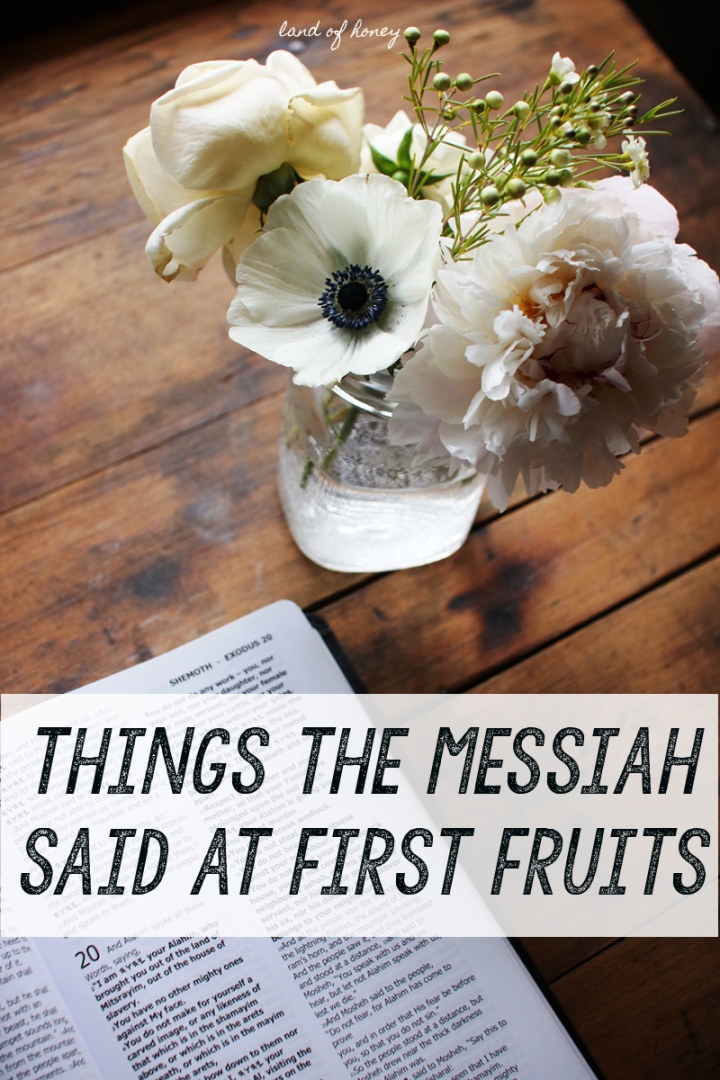To cut to the chase: no. The Messiah never once broke Biblical law. But he was often accused of breaking the law.
I used to read my Bible and think that when the Pharisees accused the Messiah of breaking Biblical law, they were correct. I figured that as the son of God, the Messiah had license to take some liberties. Just like the son or daughter of a business owner can, typically, get away with more slacking off than the average employee. And if keeping the law wasn't important to the Messiah, why on earth should it be to me?
One of the major themes of the New Testament that gets overlooked is the Messiah's harsh rebukes for manmade traditions. Many of us have made the assumption that the laws Yahusha stands against are from the Bible, buried deep somewhere in the Old Testament. But this is not the case. The laws he stood against were manmade, Jewish laws. It's important to know that Judaism has literally added thousands upon thousands of rules to their religious system that aren't found in Scripture. We see the Messiah's contempt for this in Mark 7:8, "You lay aside the commandments of YHWH, and instead hold to the traditions of men."
The Messiah frequently upset religious leaders. As did his followers. They frequently set aside manmade tradition or Jewish laws that weren't found in the Bible. But they didn't break the commandments of Scripture!
Some examples...
-Messiah accused of breaking the Sabbath day by healing someone. -Matthew 12:10
In Matthew 12:12 Yahusha responds to his accusers. He says, "It is lawful to do good on the Sabbath." That was not a new idea. He's not bending the rules or saying that it is lawful just because he says so. He is correcting his accusers. He's saying the Bible teaches this is lawful. He was not re-writing the Torah or making an "anything goes" loophole policy. He is explaining to them what the Bible says. While the Pharisees might say it is against their own laws to heal on the Sabbath, the Bible does not say this. Of course this means the Messiah did not break the law with his Sabbath healings.
-Followers eating grain on the Sabbath. -Luke 6:1-5
I think the Messiah almost brags a little here.... It's the Sabbath and some of his disciples are hungry, so they picked some kernels of wheat in a nearby field and threshed them in their hands to take off the hard chaff. While the Bible says we aren't to work on the Sabbath it does not say that you can't peel an orange to eat (which would be somewhat similar to what the disciples were doing). Yahusha told the accusers he was the Master of the Sabbath, as in I'm the best at this and I know what's permissible or not. No one knows more about what's lawful on the Sabbath than I do.
-Accusation of eating with unwashed hands. -Mark 7
Scripture tells us that there are certain animals we are not to eat, and that we are not to eat blood, and that's about it. So, yes, there are dietary laws but the Bible doesn't say that we need to do a ritual hand washing before we eat, otherwise that food magically becomes unclean or defiling. The "tradition of the elders of ritual hand washing" is not a commandment of YHWH, it's a tradition of men, and the Messiah did not stand for it. See more about that in this post.
-Peter's vision of going to the Gentiles. -Acts 10
Throughout Scripture non native born Israelites have been welcomed into the family of YHWH...the Israelites left Egypt with a "mixed multitude" of Egyptians who wanted to serve YHWH after seeing his mighty acts. Women like Rahab and Ruth were not born Israelites but are celebrated in the Messiah's lineage. Caleb was not a native born, and the prophet Obadiah is believed to be from Edom. Not allowing people like this into the faith is unbiblical. This practice was prevalent in the early church, which is why YHWH gave Peter a vision and said, "What I call clean, you do not call unclean." After this the Gospel was preached to the Gentiles.
-Paul confronting Peter about not eating with Gentiles when Jews were present. -Galatians 2:11-15
Paul tells Peter here that he shouldn't be following rules that aren't from the Bible. When he says, "You have discarded the Jewish laws, why are you trying to make these Gentiles follow Jewish tradition?" he means exactly that...Jewish tradition, not Scriptural commandments. He is in no way permitting or encouraging new believers to not follow the Biblical commandments.
"They worship me in vain, teaching as doctrines the commandments of men." -Matthew 15:9
The Messiah's statement here should be a stern warning to us not to place any human ideas or manmade traditions higher than what Scripture actually says! This goes for family traditions, Jewish law, and common Christian beliefs. None of these things should be treated as doctrines and they should never be deferred to over the commandments of the Bible.
Throughout the New Testament we see the Messiah and the apostles correcting these manmade laws. If we are going to correctly understand Scripture it is absolutely essential to realize the differences between the manmade traditions of Jewish law, and the commandments of YHWH. When the Messiah and his followers clashed with leaders of the Jewish faith, it was never because they weren't keeping a Biblical commandment. Religious leaders were upset because the Messiah was against their laws.
The Messiah always upheld and kept YHWH's instructions in the Torah. When he was accused of violating Biblical commandments, his accusers were in the wrong having applied their own traditions and customs to how the Bible is understood. Let us be careful today to not do the same thing!
More on the law:
Traditions or Commandments - Understanding the New Testament
The Faith of the Bible
The Three Types of Law in Scripture












.JPG)